
newsletter for faculty and staff | winter/spring 2018
The scoop on signs of spring
With temperatures dipping below freezing at night, of which I am reminded as I fumble with poop bags during my midnight strolls with she who must be obeyed (and who has perfected beagle breakdancing), it is difficult to imagine that we have actually crossed over into spring. But if I look harder, I can detect some shoots of hope. Enrolments look good for next year and we have seen a notable uptick in international applications. Faculty, staff and student volunteers have done a great job in sparking interest in what we are doing here at Waterloo.
We have also recently approved a new Faculty of Arts constitution, a document that had not been opened for revision since long before my time as Dean. While many of the updates are intended to bring it into the 21st century, the most significant changes in it speak to our hopes of energizing collegial governance. The challenges of fostering more dialogue and ensuring better information flow in a Faculty of such diversity was a constant theme during our strategic planning discussions, and I am hopeful that the renewed constitution will revitalize Arts Faculty Council and help to overcome some of our governance challenges.
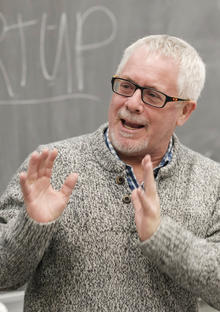
Major curricular initiatives are also well underway. At the end of March we will have our first Global Engagement Summit, followed shortly afterwards by Project Showcase highlighting the work of students at our Stratford Campus. In the fall term, our new Arts First courses will both better prepare incoming students academically for success, but also, by virtue of their small class size and interactive nature, foster a stronger sense of community amongst Arts students. Many of the findings that came from the President’s Task Force on Student Mental Health speak to our students’ sense of alienation and isolation and the Arts First courses will help to address that. I would like to thank the many faculty members who contributed their time, insights, and enthusiasm to this major initiative.
Looking ahead, I anticipate further discussions within the Faculty as to how best we can assist the university in responding to the recommendations in the Truth and Reconciliation Report. We will continue to work with the recently renamed Waterloo Indigenous Student Centre to organize and grow the Indigenous Speakers Series, facilitate curricular conversations, develop new courses, and in general spark discussion about what we can collectively do to redress past injustices. I am really chuffed by the number of faculty, students, and staff from Arts who have been so critical in the discussions taking place as we set the framework for a university indigenization plan.
As spring and families of geese gain traction on campus, please join us for Celebration of Arts on April 25, our annual fete of excellence in teaching, service, and research by so many of our colleagues. March can be such a wearing month with grading, a winter that seems never to end, budget and complement planning, apprehension over imminent geese attacks that we can often be so overwhelmed by the challenges before us that we forget to notice the many achievements we have individually and collectively made.
Global Populism & Democratic Futures Summit: join the conversation
» Dani Marcheva, Global Engagement Program Coordinator
The outcome of the Brexit vote, the election of President Trump, the erection of border walls across the European continent, recent populist gains in Italy, Germany, Austria, and Canada raise important questions about democracy and the power of citizen’s disillusionment with the current state of affairs.
On March 28 and 29, an exciting Global Populism & Democratic Futures Summit will bring together students, academics, practitioners, dignitaries and the broader Waterloo community to discuss the meanings and implications of the global rise of populist movements.
On the first evening of the summit (March 28th), Dr. Kurt Huebner, the Interim Director of the European Studies Institute at UBC, will tell us about populist movements and parties across Europe and the challenges they pose to European integration. That same evening, Dr. Ann Komaromi, an Associate Professor at the Centre of Comparative Literature at the University of Toronto, will present a critical cultural analysis of the negative effects of social media on democracy, drawing on her research about Soviet dissident networks.
On the following day (March 29, Dr. Henry Giroux, the University of Waterloo’s 2018 Jarislowsky Fellow and the McMaster University Chair for Scholarship in the Public Interest, will give a keynote presentation on the threats of a Trump presidency for higher education and democracy.
On the afternoon of March 29th, the Global Engagement Seminar Program’s students will showcase a number of interactive exhibits, including
- The Effects Of Populism On Science And The Effects Of The Anti-Science Movements,
- M(Other)Land: Cultural Belonging In The Wake Of Populism,
- You Don’t Know what Your Social Media is Doing to Your Democracy.
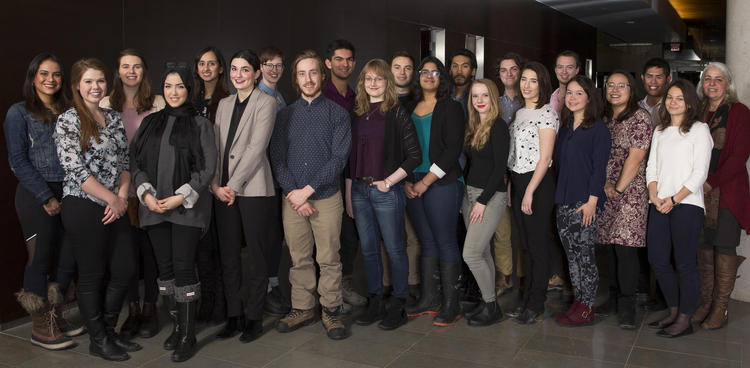
Unlike more conventional scholarly conferences, this summit offers participants the unique opportunity for exchange with a select group of students involved in the Global Engagement Seminar Program, who combine their creative and research skills from across the disciplines of Engineering, Math, Applied Health Sciences, and Arts.
A panel discussion has also been organized on the topic #Feminism: When a Movement Goes Mainstream. Antonio Brieva, the President of the Feds, and a representative from the UW Equity Committee will join the discussion on university policies and practices to advance gender equality on- and off-campus.
If you can’t join us through the day, you will be able to learn about the students’ ideas in the evening of March 29 when they will deliver formal presentations about their projects.
To be a part of the conversation, register for your free Summit tickets via Eventbrite for March 28 and/or March 29.
The Global Engagement Seminar is a new pilot-program generously supported by the Jarislowsky Foundation that brings together a select group of students from across the six university faculties in order to engage with pressing global issues. The program’s Director and this year’s instructor Dr. Jasmin Habib has worked closely with Dr. Henry Giroux, Jarislowsky Fellow, to think critically about the global challenges posed by populism and the implications for democratic engagement.
Inside Arts First
» Heather Smyth, Associate Director, Arts First | Associate Professor, English
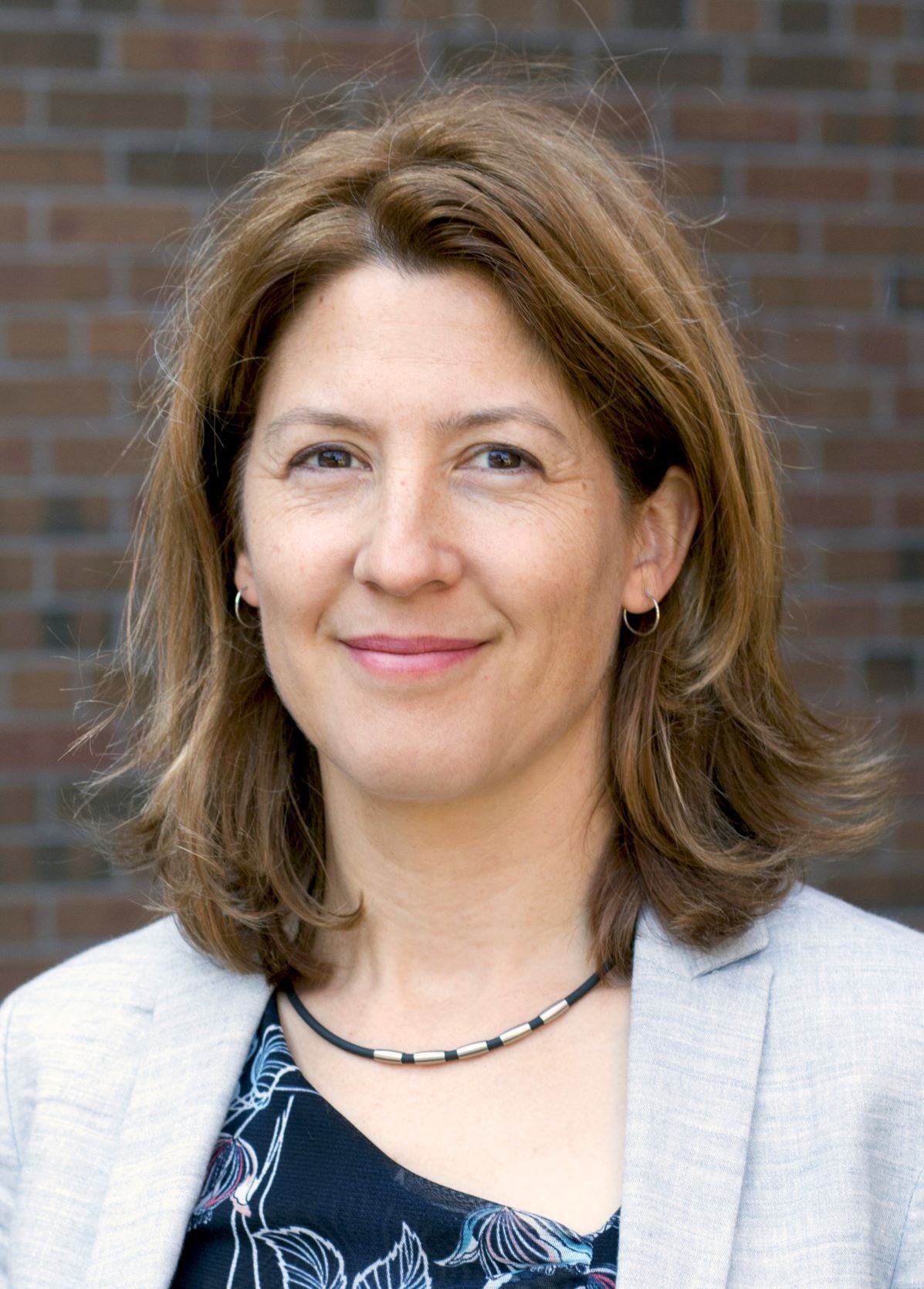
Arts First is a new program offering first year students in Arts foundational skills in communication and analysis. Starting in 2018-2019, all incoming Arts students will take ARTS 130 (Inquiry and Communication) and ARTS 140 (Information and Analysis) in 25-student sections taught by continuing faculty from all Arts disciplines.
To prepare for that rollout, five of us have been teaching pilot courses for Arts First: Rob Danisch and I are teaching two sections of ARTS 130, on the topics “How to Talk to Strangers, Enemies, and Friends” and “Reconciliation, Resistance, Resurgence” respectively. Three sections of ARTS 140 are also running, taught by Angela Carter (“The Politics of Climate Change”), Randy Harris (“Bullshit, Argument, the Universe, and Everything”), and Steve Bednarski (“Debunk Alt-Facts: Info Literacy”).
Each section is taking a different approach: Angela Carter, for instance, is teaching in a three-hour evening block and has partnered with Porter library and the Writing and Communication Centre to create a collaborative research/writing space (including a weekly writing café). I’m using a digital classroom at St. Jerome’s outfitted for flexible group collaboration, and have included ‘field trips’ to Archives and Special Collections at Porter library, the Waterloo Indigenous Student Centre, and a visit with Oneida of the Thames Elder Rev. Dr. Antone.
I’m learning how rare it is for first year students to find themselves talking with their peers and voicing their own ideas in front of the class.
The pilot sections are doing what we hoped they’d do: they’re helping us learn what models and classroom activities work best in this new format, and we’re testing the new courses with a small group of students to get their feedback. For instance, I’m learning how much “content” can be handled in a class with this much hands-on writing practice, and how to use focused readings that can serve many different purposes. I’m also learning how rare it is for first year students to find themselves talking with their peers and voicing their own ideas in front of the class.
Rob (Director, Arts First) has learned that students are able to quickly form themselves into a community when given some space in class to interact and wrestle with problems together. And when we take time to go more slowly through some essential practices together, like how to read a text closely or structure a presentation clearly, we all learn a lot more deeply.
Randy is aiming to help students orienteer in a mediascape mired in bullshit and crowded with fake news outlet malls, as well as roadside stands of credible analysis and pick-your-own information orchards--at the most formative time in their university career, and perhaps in their citizenship. He is getting feedback from students that they are surprised at how much they are applying the classroom material to their own lives, and applying the commentary from assignments to their future assignments, including in other classes. These are the foundations we hoped Arts First would start to build.
This is an exceptional opportunity for teachers to showcase for students the things they love best about their discipline.
The 2018-19 rollout will involve about 1,000 students taking ARTS 130 and 140. Over 40 sections of each course will be delivered within the four themes of “Borders and Belonging,” “Inequality: the Haves and Have-Nots,” “After the Digital,” and “Truth and Lies.” Instructors are interpreting the themes broadly and creatively, so students will be able to take “Believe Everything You See: How Painters, Magicians, Octopuses, and other Tricksters Take Advantage of You” from Fine Arts, “Black and Free” from Theatre & Performance, “The Truth, Half the Truth, and Nothing Like the Truth” from Philosophy, “Slums: Poverty Traps or Places of Opportunity” from Economics, “The Brain in Popular Culture: Sorting Fact from Fiction” from Psychology, and “Berlin and Vienna: Historical Disneylands?” from German/Slavic Studies, to give just a few examples of the varied approaches to Arts First.
I think it’s pretty clear from the titles, and from many conversations I’ve had with next year’s instructors, that this is an intriguing and exceptional opportunity for teachers to showcase for students the things they love best about their discipline, while also engaging closely with skills-building for small groups of students. Watch for our instructors workshop in July 2018: all Arts faculty are welcome to attend, even if they’re not scheduled to teach in the Arts First program yet. And in September, consider sending in your own proposal for 2019-20.
The work-life balancing act
» Stacy Reda, ASAC Chair | Operations Manager, Arts
Work-life balance can often feel like an unattainable concept. Staff in the Faculty of Arts are known to strive for excellence and to go above and beyond the call of duty, but when asked if they take time in their busy schedules to care for themselves, many say they do not.
Because our personal lives can be just as busy as our work lives, the Arts Staff Advisory Council (ASAC) is focusing its energy on practicing wellness in the workplace this year. The ASAC has once again submitted a proposal to the Staff Excellence Fund to continue offering the Arts Staff Yoga classes and eagerly await confirmation. Our subcommittees are also in the process of organizing events related to wellness and relieving stress.
Throughout the year, watch for our workshops on Chair Yoga, De-stress Colouring, and Mental Health discussions. In addition, get out of the office and join us for a beverage and sweet treat at our Arts Staff Coffee Breaks, held once per term, and our Holiday Cookie Exchange in December.
The ASAC is committed to developing initiatives that directly benefit staff in the Faculty of Arts. Learn more about us on the ASAC webpage. If you have any suggestions on how we can better serve the Arts community, feel free to reach out to us at asac@uwaterloo.ca .
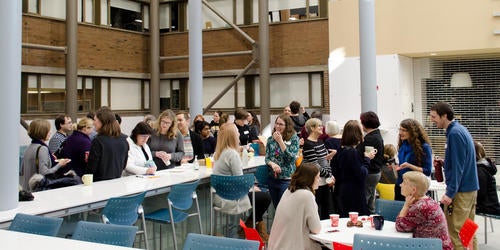
Our community of Arts Staff have been strengthened by these events in the past and we are looking forward to welcoming more of you!
Stratford students exhibit creative design at Project Showcase
If you haven’t visited our Stratford Campus yet, the perfect opportunity awaits you on April 3 to find out what students, faculty, and staff actually do there — and why the student cohort has grown so much in 5 years. And who knows? The next great digital innovation may be on display at this year’s Project Showcase.
This annual juried year-end exhibition features works that students in the Global Business & Digital Arts program have created throughout the fall and winter academic terms in their course work. Presenting students will be on hand to discuss their projects that range from video and sound works, to persuasive visual media, to projects that critically engage with some of the world’s wicked problems.
The annual Project Showcase is such an exciting and positive event!
"It gives us the opportunity to celebrate the students' accomplishments and all their hard work," says Christine McWebb, academic director. "They look forward to talking about their creative work with all visitors, including the industry partners whose challenges the student projects address."
Along with the Student Choice Award and the Christie Digital Design Awards, Project Showcase highlights graduating capstone projects, where fourth-year students are challenged to integrate what they have learned in their course work and apply it to a real-world industry-driven challenge.
Please join us at the Stratford Campus on Tuesday, April 3 from 3:30 to 6:30 pm for Project Showcase.
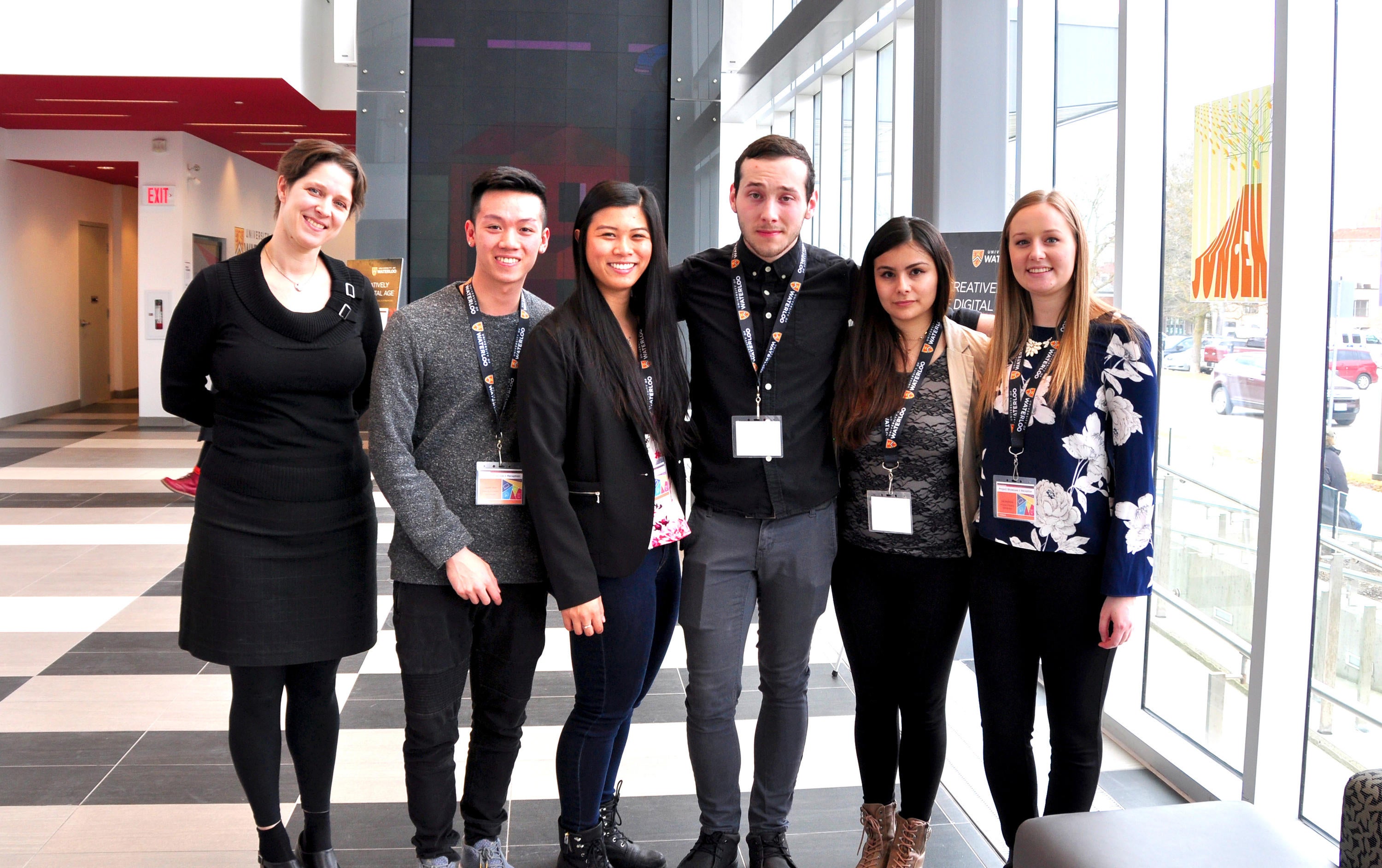
Duly noted
- April 5 & 6, the Faculty Association of the University of Waterloo (FAUW) is pleased to offer four workshops to help faculty through key transitions in their academic career. Read all the details.
- April 5, Research Talks: Contemporary Indigenous issues in Canada, featuring Susan Roy, Jasmin Habib, Lori Campbell, and Dan McCarthy.
- April 20, Pursuing Peace: Stories from home and abroad, Conrad Grebel University College celebrate 40 years of peace education, with a keynote address by the Hon. Bob Rae.
- April 25, Celebration of Arts, afternoon in the Hagey Hall Hub. Details coming soon!
Feedback?
Inside Arts is published each term. Comments, ideas, and submissions are always welcome. Please contact Wendy Philpott.


